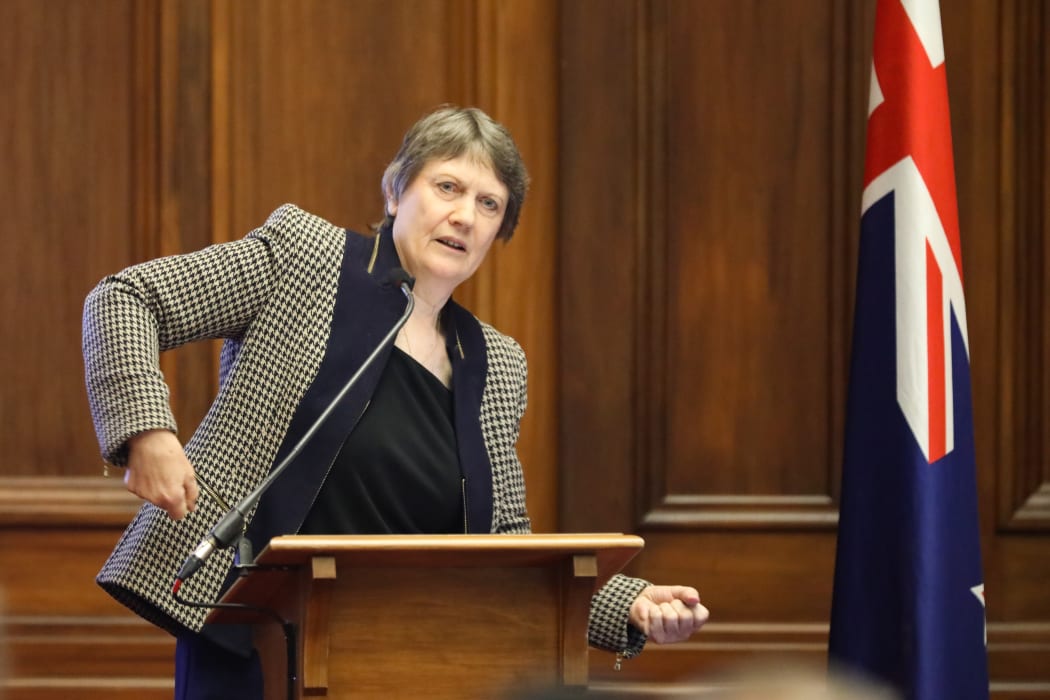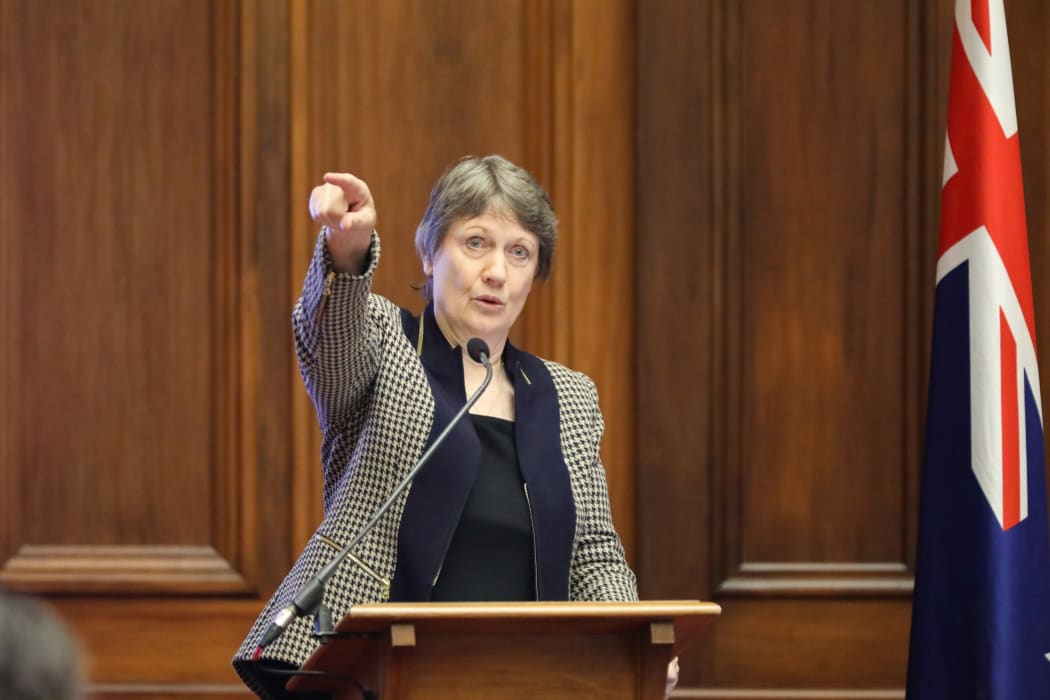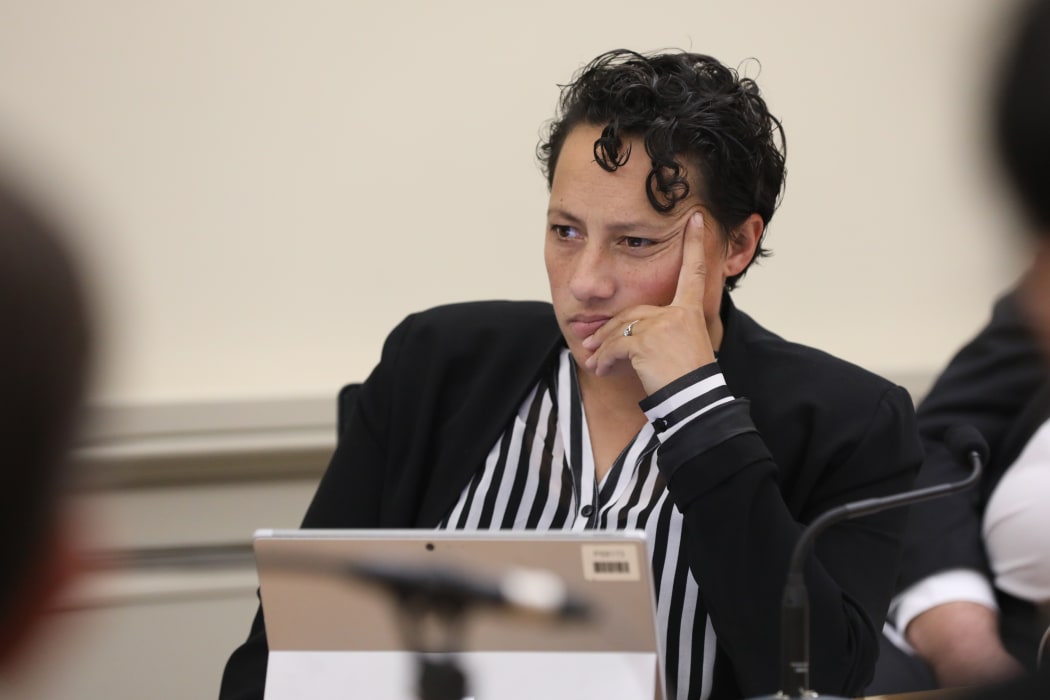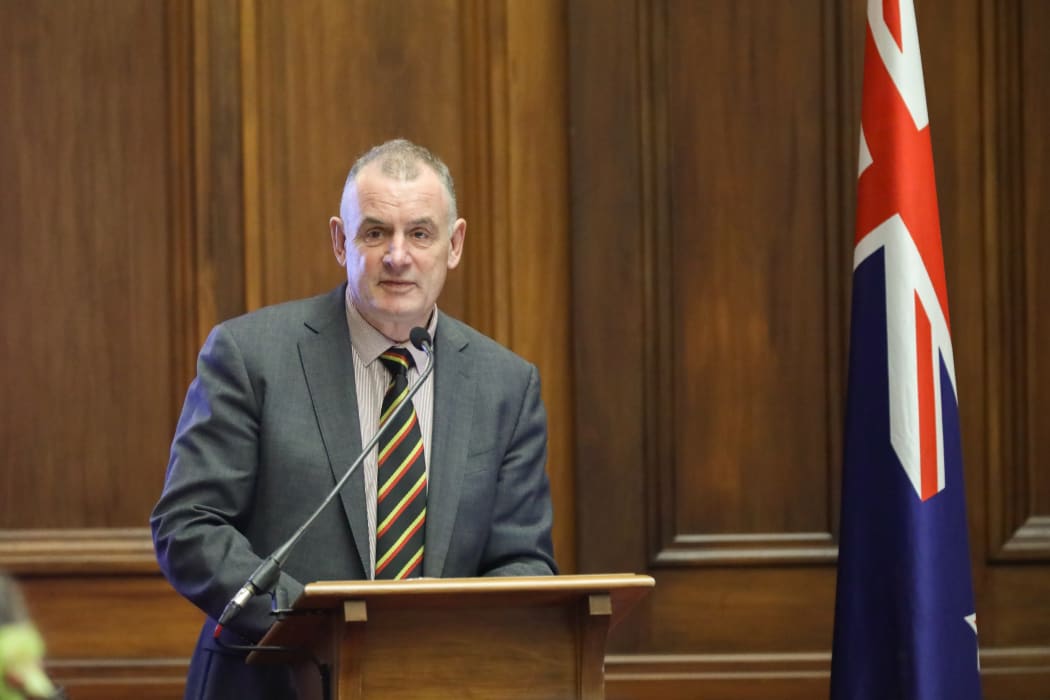Russia has had footballers from 32 countries visiting. You might not have noticed, it was only a small event.
New Zealand's Parliament has been doing something similar recently. They hosted the people who run 23 different Parliaments and 30 Parliamentary chambers. Fewer football games though. Probably none in fact, but the FIFA World Cup failed to discuss parliamentary procedure, so it's a draw.
It's a regular event where the various Clerks, Speakers and senior officials (collectively, presiding officers), from across Australasia and the Pacific get together to swap tips and skills.
Among the many sessions, one celebrated 125 years of votes for New Zealand women, and among the participants were a new MP and a former one.

Former Prime Minister Helen Clark demonstrates the three recreations of male MPs of yore - the billiards room, the bar, and cards. Photo: VNP / Phil Smith
Former Prime Minister Helen Clark and recent MP Kiri Allan spoke about how much has changed, and what is yet needed to make Parliament more inviting for women, families, and members of New Zealand's various communities.
Helen Clark recalled turning up in 1981 as one of just eight women (of then 100 MPs). Eight was a radically large number at the time. Helen Clarke remembered being described by the departing PM, Robert Muldoon as "All these women!"
Parliament was a hobby for rich men, and didn't meet for months at a time, before cramming its agenda into half the year, sitting late into the night.
Alcohol was a centrepiece, along with billiards and and cards. The building had the aura of a gentlemen's club.
The former Prime Minister recalled that the enormous space that was dedicated to billiards tables for the MPs became divided with a small corner curtained off to provide a space for the women MPs.

Helen Clark points to where the small curtained-off 'women's area' was amongst the billiards tables. Photo: VNP / Phil Smith
"Believe me, if you sat in there and listened to the conversation at the billiards table, you learned quite a lot."
She credited former PM Geoffrey Palmer for beginning to change all that in 1984. She described him as having professionalised Parliament, changing the job of MP from a hobby to a profession and making important changes to how Parliament sat, something vital to making Parliament more family friendly.
Kiri Allan (who became at MP at the 2017 election) spoke of recent changes that made it more possible to come to Parliament despite having a newborn child. Among those were the ability to have babies brought into the chamber and for mothers to bring tots to special sessions in the swimming pool.
But she acknowledged that more needs to be done to make Parliament an inviting place to come for families, and to make being an MP a less impossible job for parents. Among those things were restrictions on travel support for caregivers.

MP Kiri Allan listens evidence in Select Committee Photo: VNP / Phil Smith
The Speaker, Trevor Mallard had earlier spoken of his hopes to make Parliament even more family friendly. He has introduced rules to make it easier for MPs that are parents of young children to be absent from sittings, but wants to go further.
In June the speaker announced the construction of a playground in the grounds of Parliament. This move is possibly aimed less at MPs and more at encouraging the public to come into the grounds, by making Parliament a less forbidding place.
It is only one of many recent changes aimed at opening up Parliament to the community.

The Speaker of New Zealand's Parliament, Trevor Mallard, speaks at the Presiding Officers Conference. Photo: VNP / Phil Smith
At a separate session the Clerk of New Zealand's House of Representatives, David Wilson, outlined many of the recent changes aimed at easing public access to the political process. These include the introduction of electronic petitions, various social media channels, daily video briefings from the Speaker, live captioning on Parliament TV, the sign language translation of Oral Questions, and the very recent innovation of webcasting select committee hearings.


